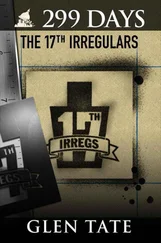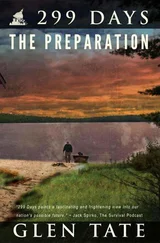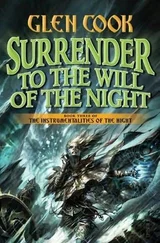The churches were doing much more than just sermons. They used the big kitchens each one had to start providing meals for people. Church members would bring extra food, especially game meat and fish, and share it with fellow members, and anyone else in need. Churches became strong and cohesive groups of people. They were like all the other groups forming after the Collapse: gangs, just not the kind of gangs that hurt people. Churches were doing what they had always done—before the government moved in several decades ago and took over social services. Now, instead of taxes being collected and sent thousands of miles to Washington, D.C., passing through dozens of agencies, and finally returning to Forks, the charity stayed in Forks. As a result, much more of it got to the people who needed it.
One area that became disturbing very quickly was people getting cut off from their medications. Old people and others on life-sustaining medications were dying. It was sad, but everyone expected it. The other unsettling thing was all the people on mental illness medications. There were some people who started going crazy once their meds ran out.
One of them was Donnie Phillips, a guy Steve went to high school with. No one knew that Donnie was on anti-depressants. After about a week without his meds, he tried to kill his kids. A neighbor, Bob Francis, came over and had to shoot Donnie, as he was attacking his children, who had locked themselves in the bathroom. That was especially hard on Steve; he knew both of them from high school, and one had to shoot the other.
There were many people who were helping family as they went off their medications. They would remove all the guns and knives in the house and stay with them all they could. It was sad. Families who had mental illness in the family, and had been able to mask it with medication, were now ashamed when their secrets were coming out. Most people understood and tried to help.
Steve sat back at his desk in the auto parts store during a quiet moment. He thought about all that was going on and how the town was reacting. So far, so good. Better than he would have thought. But this was only the beginning of the Collapse. Would things hold together for months? What about winter?
Chapter 106
The Gray Man
(May 10)
Ed Oleo, a handsome man in his late fifties with a full head of grey hair, looked out his big living room window at the Pacific Ocean. He lived in West Seattle, a nice part of the city, but not one of the trendy parts. He was surrounded by good solid homes, many with nice views of the water. Ed owned a real estate company, so he always looked at neighborhoods like he was selling a house. When he looked at his neighborhood he thought: water view, established neighborhood. That described West Seattle.
A Seattle water view was still spectacular, even with all that was going on in the world. Things actually weren’t too bad in Seattle, at least not in West Seattle. Ed had known the country was living in a false economy and the house of cards would come down, eventually. It sure did, though, it wasn’t yet as bad as he expected it to be. He expected all the city people around him to go berserk with hunger and start killing each other. He thought Seattle would look like a scene from an apocalyptic movie.
Ed was wrong. At least so far. The first ten days of the “Crisis” were pretty rough. The shelves of the area Whole Foods, an overpriced organic grocery store, went bare about two days after May Day. There was only one gas station in the whole neighborhood because the city planners had determined that most cars would eventually be electric. The one gas station in West Seattle went dry one day after May Day.
But, to Ed’s amazement, his neighborhood kept calm. There was some crime, but they were minor thefts. Mostly teenagers. To get to West Seattle, one must go over a bridge. The police, what was left of them, stopped cars on the bridge which kept the obvious riff-raff out. None of his neighbors started carrying guns. None of them owned guns as far as Ed could tell. He owned a shotgun and felt like the best armed guy in a one-mile radius. Except for the criminals.
Even though violent crime wasn’t a day-to-day problem, at least in West Seattle, there were plenty of private security firms. They were everywhere. Lots of former soldiers and police were gainfully employed by these firms, most of which had “arrangements” with the police to essentially do whatever they wanted. The businessman in Ed wished he’d invested in these companies before the Collapse.
The people of West Seattle were a little too compliant for Ed’s taste, but he had to admit that it worked out well that they followed the instructions they were given on TV: remain in your houses, help is on the way, America will bounce back, yada yada yada. If the bad stuff, like the stores being empty and gas stations being closed, would have lasted more than ten days, they might not have remained so calm. Ed knew his neighbors couldn’t have done much for themselves. Almost all of them were software developers, in the financial industry, or, the biggest industry of all, government.
They were helpless. Ed shook his head and thought that if his neighbors couldn’t take their Prius to Whole Foods every day to get fresh goat cheese or whatever they ate, they would curl up into a ball and die. Turns out they didn’t die; they just complained like they were dying, but amazingly they actually made it ten days without goat cheese. Ed imagined that the withdrawals from the $7.00 lattes were pretty hard, but they lived.
After about ten days of failure after failure, the government actually started to get food and a little fuel into the city. Ed was amazed. One day, the rumor went around that a semi had arrived at Whole Foods, so people rushed out to get some food. It was true: a semi was there. But there were two disappointments.
First, people had to fill out an application for an “FCard,” which was a government electronic ration card known as a “Freedom Card.” The Freedom Corps people, wearing yellow hardhats, helped people fill out the applications and explained that the FCard could be used to get food and a limited amount of gasoline. It would draw on a person’s bank account and investments. People were euphoric: the banks had been closed, so they could finally use their money. Ed knew that the government was basically stealing their money in exchange for a little bit of food, and he came up with another word that began with “F” to better explain the FCard. But people were so thankful their government had worked hard for them and come up with a solution. Ed just shook his head. It was so obvious what was happening, but the sheeple didn’t care.
Everyone got an installment of food while their FCard application was being processed. Ed called it a “ration,” but the FCorps person at the application table corrected him. “It’s an installment, not a ‘ration,’” she said to Ed in a snappy tone.
The second disappointment was the food in the truck. It was “typical American” food or, as one of Ed’s neighbors called it, “truck stop” food. Lots of processed grains like biscuit mix, cheap pasta, mashed potato mix. There was even gravy mix—no one in yuppie West Seattle had eaten gravy mix in decades. The truck even had beef jerky. “Who eats that?” One man in line asked, “Truck and tractor pull fans?”
One lady asked the FCorps person handing out “installments” how much sodium the jerky had. Sodium? That’s a concern now? Ed shook his head again. What’s wrong with these people? They should be glad they have some food. It only cost them their entire life savings. They should be thankful, Ed chuckled to himself.
Once the shock of having to eat “truck stop” food wore off—and with grumbling stomachs it wore off very quickly—people were glad to get their “installment.” All across West Seattle, people were eating instant mashed potatoes for the first time ever. It was amazing how something like a few semis full of “truck stop” food could put everyone in a better mood. There was hope now. The semis would keep coming. They could use the FCards. The food would get slightly better and better with each truckload. Pretty soon, things would be back to normal, they kept telling themselves.
Читать дальше











